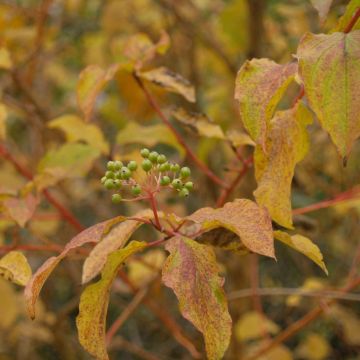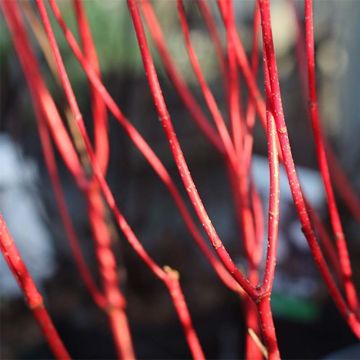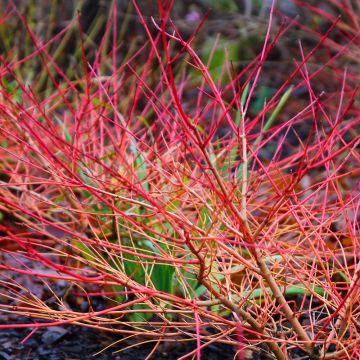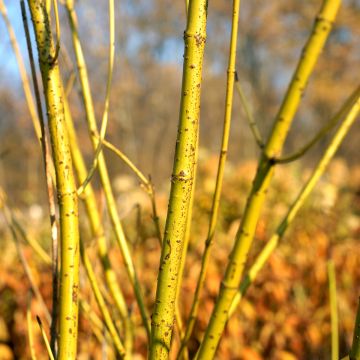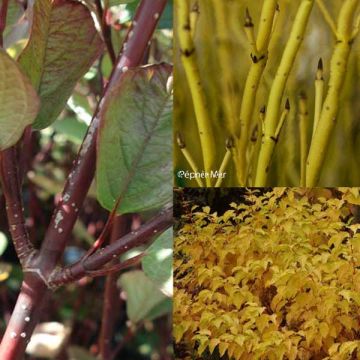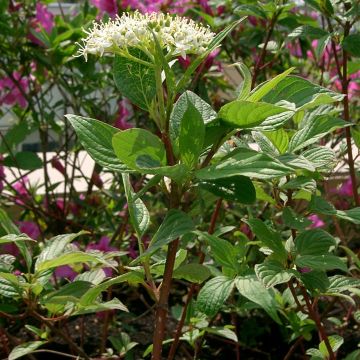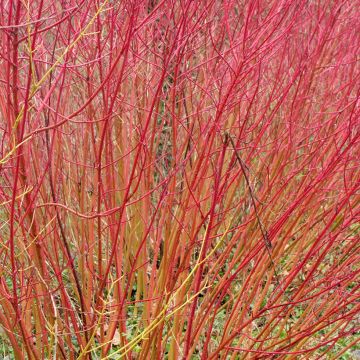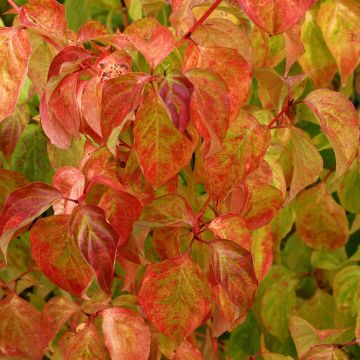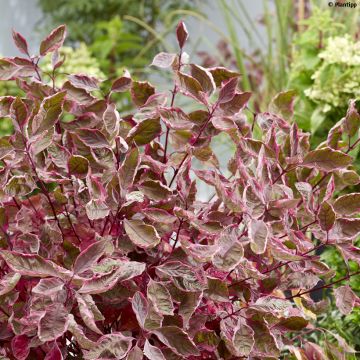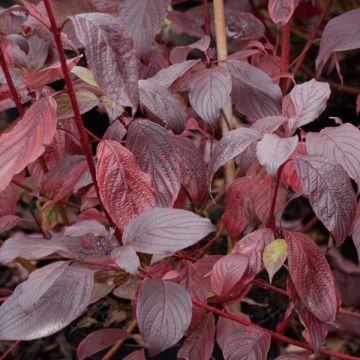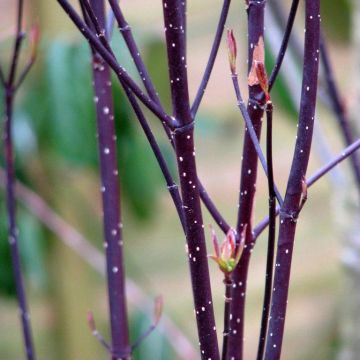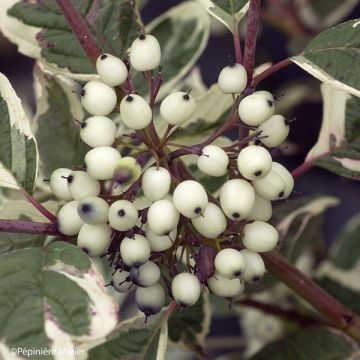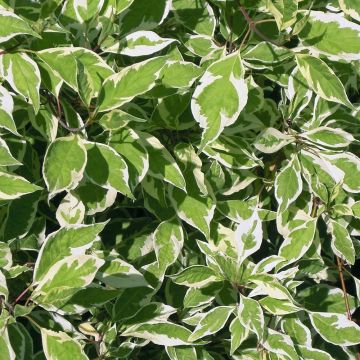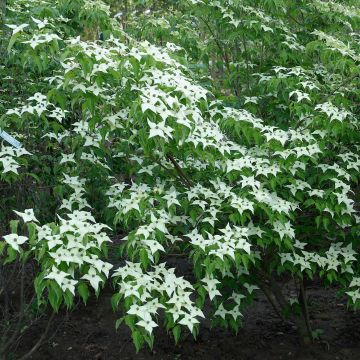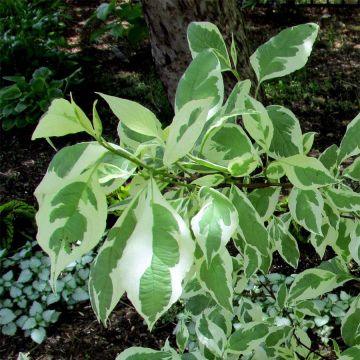Plantfit
Log in / Register
Existing customer?
New customer?
Create an account to track your orders, access our customer service and, if you wish, make the most of our upcoming offers.
My Account
Hello
Shipping country and language
Your country of residence may be:
For a better user experience on our website, you can select:
Your shipping country:
Andorra
Austria
Belgium
Bulgaria
Croatia
Czechia
Denmark
Estonia
Finland
France
Germany
Greece
Hungary
Iceland
Ireland
Italy
Latvia
Lithuania
Luxembourg
Monaco
Netherlands
Poland
Portugal
Romania
Slovakia
Slovenia
Spain
Sweden
Switzerland
Language:
French
English
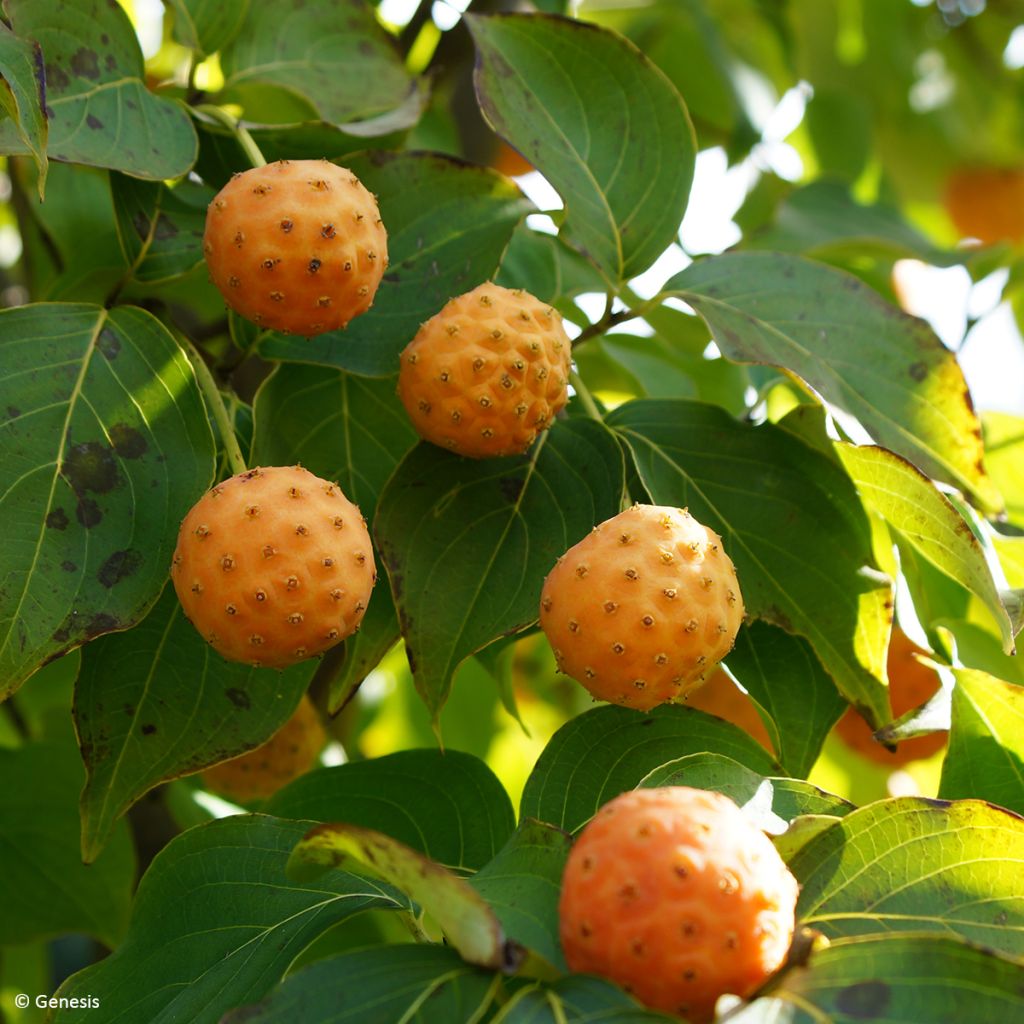

Cornus kousa var. chinensis - Flowering Dogwood
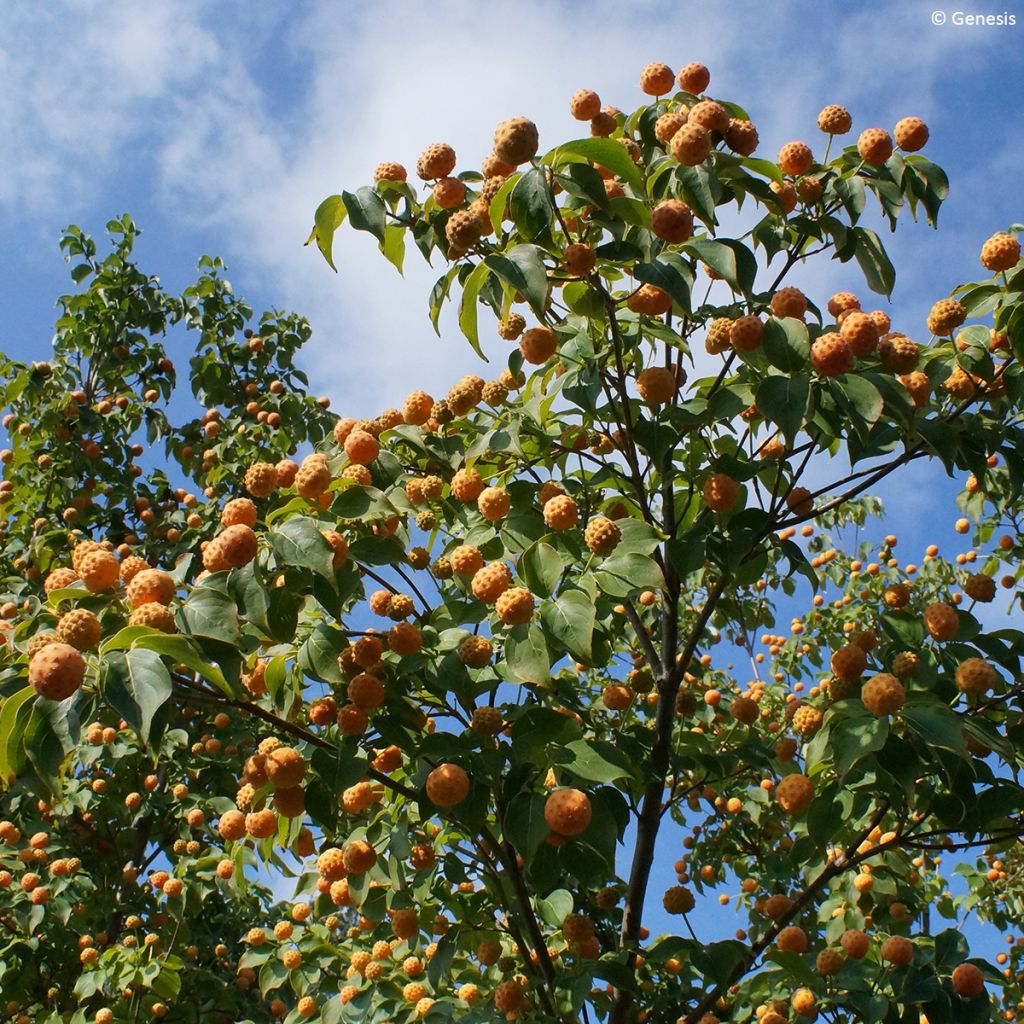

Cornus kousa var. chinensis - Flowering Dogwood
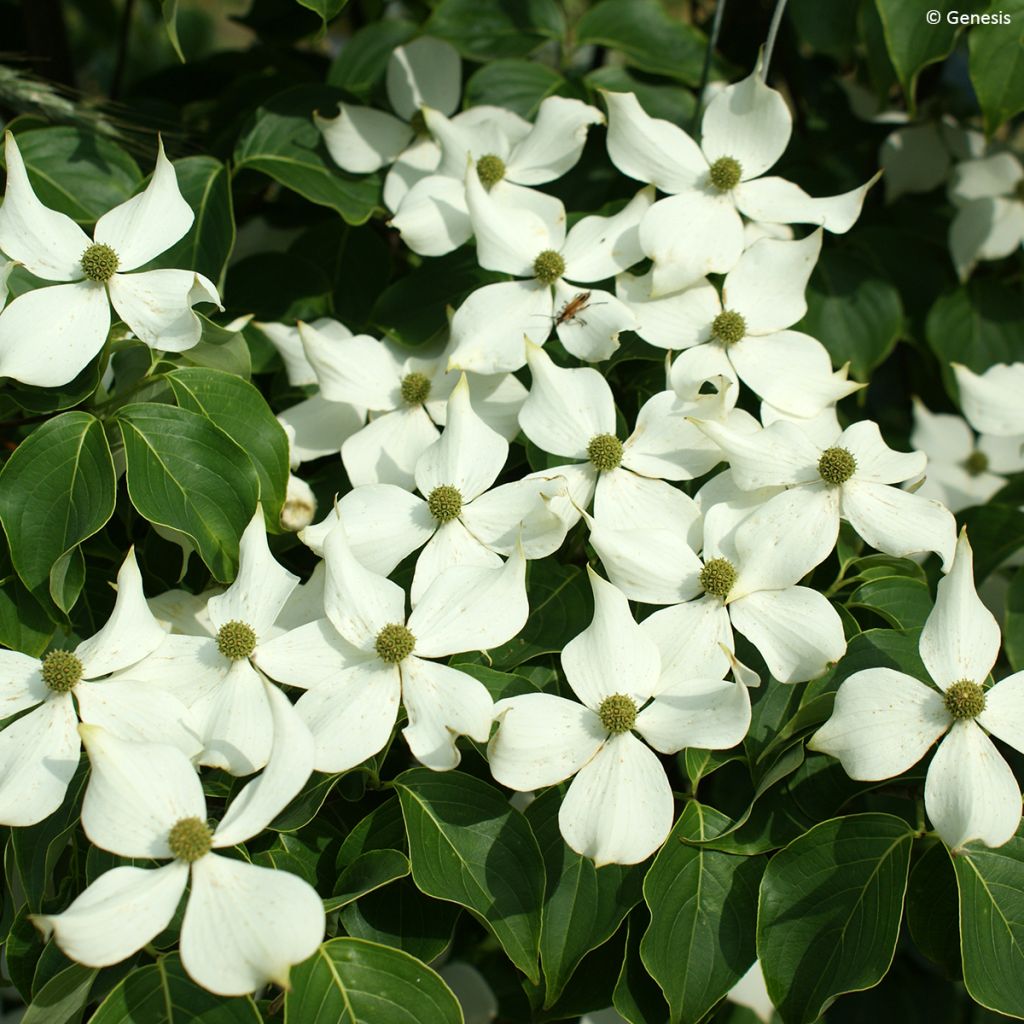

Cornus kousa var. chinensis - Flowering Dogwood
Cornus kousa var. chinensis - Flowering Dogwood
Cornus kousa var. chinensis 'Madi-II' Mandarin Jewel®
Kousa Dogwood, Japanese Dogwood, Chinese Dogwood
Order in the next for dispatch today!
Dispatch by letter from €3.90.
Delivery charge from €5.90 Oversize package delivery charge from €6.90.
More information
This item is not available in your country.
Select delivery date,
and select date in basket
This plant carries a 24 months recovery warranty
More information
We guarantee the quality of our plants for a full growing cycle, and will replace at our expense any plant that fails to recover under normal climatic and planting conditions.
From €5.90 for pickup delivery and €6.90 for home delivery
Express home delivery from €8.90.
Does this plant fit my garden?
Set up your Plantfit profile →
Description
Cornus kousa var. chinensis is a variety of Dogwood that is very interesting for its vigour and the abundance of its pure white flowers. The flowers give the illusion of being delicately placed directly on the bright green foliage, which contrasts remarkably with the whiteness of the bracts. This strongly growing bush is very elegant thanks to its spreading habit with layered and horizontal branches that give it an architectural look, and bring an oriental touch to the garden. In September, the Chinese Dogwood is covered with small fruits that strangely resemble strawberries and give the tree a strong decorative power. The spectacle continues until autumn when the foliage ignites and turns fiery red before falling. This Dogwood is very hardy and can be grown in most regions!
The Kousa Dogwood is a small tree, native to Japan, China, and Korea. Its architectural silhouette, drawn by its layered and horizontal branches as well as its compact and spreading habit, evokes an oriental landscape. This small tree, which measures between 4 and 5 metres (13 and 16 feet) in gardens, has many attractions. In early summer, its deep green foliage is covered with a profusion of white flowers giving the illusion of freshly fallen snow. These are actually green glomerules that give rise to solitary star-shaped inflorescences which are well-defined and composed of 4 pointed bracts. The longevity of the flowers, which turn pink before fading, enchants the garden for weeks. In September, the flowering Dogwood is covered with small red fruits, similar to strawberries. The higher the summer temperatures, the more generous the fruiting. The fruits are edible, fleshy, with a sweet flavour, but they do not have any real taste interest, mostly providing ornamental value to the tree. The leaves of the Cornus kousa are ovate, slightly wavy on the edges and bright green. They measure between 5 and 8 cm (2 and 3.1 in) and are arranged opposite each other along the stem. In autumn, they offer a flamboyant spectacle when they turn vivid red colours before falling. The strong decorative power of the Flowering Dogwoods has encouraged nurserymen to obtain new varieties with different characteristics.
The chinensis variety of Cornus kousa has a greater vigour than the natural species, as well as an even more spectacular flowering. In fact, the Chinese Dogwood can reach 7 metres (23 feet) in height with a spread of 5 metres. However, its slow growth will not allow it to exceed 4 metres (13 feet) in height after 10 years of cultivation. The pure white flowers of this variety are larger than those of the typical species and particularly abundant. From June to July, they appear as if sprinkled directly on the foliage, almost completely covering it in a magical scene.
Cornus kousa prefers continental climates and temperate zones. Extremely cold temperatures can cause reduced flowering. However, this bush is very hardy and can withstand frosts of at least -20°C (-4°F). It tolerates sunny exposures in areas with moderately hot summers. In hot regions, it should be planted in a spot sheltered from the scorching sun. The chinensis variety of Cornus kousa likes fertile, well-drained soils with an acidic tendency. It can tolerate clay soils as long as it is protected from excess moisture, especially in winter. Plant it in a deep hole lined with clay pellets, coarse sand, or gravel to ensure good drainage. At planting, provide it with compost and ericaceous soil. A mulch of pine bark will help maintain soil moisture and acidity. This Cornus is easy to grow if planted properly. Pruning is not essential but can be done at the end of winter to remove diseased or dead wood and crossing branches in order to maintain a beautiful habit. Resistant to diseases and low maintenance, it can be forgotten while attracting attention!
Cornus kousa chinensis reaches its full size and reveals its splendour when planted in isolation, in the middle of a lawn for example. But it can also be placed at the back of a flower bed and make a living screen that is lush, flowering, and glowing. It blends perfectly with all plants that prefer ericaceous soil and will work wonders alongside 'Mountain Fire' Pieris, 'Limelight' Hydrangea paniculata, or 'Osakazuki' Japanese Maple.
Plant habit
Flowering
Foliage
Botanical data
Cornus
kousa var. chinensis
'Madi-II' Mandarin Jewel®
Cornaceae
Kousa Dogwood, Japanese Dogwood, Chinese Dogwood
Cultivar or hybrid
Planting and care
Originating from Japan, Korea, and China, Cornus kousa thrive in continental climates and temperate zones. Extremely cold temperatures can result in reduced flowering. However, this bush is very hardy and can withstand frosts of at least -20°C (-4 °F). It tolerates sunny exposures in areas with moderately warm summers. In hot regions, it should be sheltered from scorching sun.
Cornus kousa chinensis prefers fertile, well-drained soils with an acidic tendency. It can tolerate clay soils as long as it is protected from excess moisture, especially in winter. Plant it in a deep hole lined with clay balls, coarse sand, or gravel to ensure good drainage. At planting, add compost and ericaceous soil. Mulching with pine bark will help maintain soil moisture and acidity. This Cornus, still rare in gardens, is pleasant to grow once it has been planted correctly.
Watering should be done regularly during summer for the first two years after planting. Once the bush is established, water should only be provided in case of drought.
Pruning is not obligatory but can be done at the end of winter to remove diseased or dead wood and crossing branches in order to maintain an attractive habit.
Resistant to diseases and requiring little care, it knows how to stay unnoticed while being noticed!
Planting period
Intended location
Care
This item has not been reviewed yet - be the first to leave a review about it.
Spring-flowering shrubs
Haven't found what you were looking for?
Hardiness is the lowest winter temperature a plant can endure without suffering serious damage or even dying. However, hardiness is affected by location (a sheltered area, such as a patio), protection (winter cover) and soil type (hardiness is improved by well-drained soil).

Photo Sharing Terms & Conditions
In order to encourage gardeners to interact and share their experiences, Promesse de fleurs offers various media enabling content to be uploaded onto its Site - in particular via the ‘Photo sharing’ module.
The User agrees to refrain from:
- Posting any content that is illegal, prejudicial, insulting, racist, inciteful to hatred, revisionist, contrary to public decency, that infringes on privacy or on the privacy rights of third parties, in particular the publicity rights of persons and goods, intellectual property rights, or the right to privacy.
- Submitting content on behalf of a third party;
- Impersonate the identity of a third party and/or publish any personal information about a third party;
In general, the User undertakes to refrain from any unethical behaviour.
All Content (in particular text, comments, files, images, photos, videos, creative works, etc.), which may be subject to property or intellectual property rights, image or other private rights, shall remain the property of the User, subject to the limited rights granted by the terms of the licence granted by Promesse de fleurs as stated below. Users are at liberty to publish or not to publish such Content on the Site, notably via the ‘Photo Sharing’ facility, and accept that this Content shall be made public and freely accessible, notably on the Internet.
Users further acknowledge, undertake to have ,and guarantee that they hold all necessary rights and permissions to publish such material on the Site, in particular with regard to the legislation in force pertaining to any privacy, property, intellectual property, image, or contractual rights, or rights of any other nature. By publishing such Content on the Site, Users acknowledge accepting full liability as publishers of the Content within the meaning of the law, and grant Promesse de fleurs, free of charge, an inclusive, worldwide licence for the said Content for the entire duration of its publication, including all reproduction, representation, up/downloading, displaying, performing, transmission, and storage rights.
Users also grant permission for their name to be linked to the Content and accept that this link may not always be made available.
By engaging in posting material, Users consent to their Content becoming automatically accessible on the Internet, in particular on other sites and/or blogs and/or web pages of the Promesse de fleurs site, including in particular social pages and the Promesse de fleurs catalogue.
Users may secure the removal of entrusted content free of charge by issuing a simple request via our contact form.
The flowering period indicated on our website applies to countries and regions located in USDA zone 8 (France, the United Kingdom, Ireland, the Netherlands, etc.)
It will vary according to where you live:
- In zones 9 to 10 (Italy, Spain, Greece, etc.), flowering will occur about 2 to 4 weeks earlier.
- In zones 6 to 7 (Germany, Poland, Slovenia, and lower mountainous regions), flowering will be delayed by 2 to 3 weeks.
- In zone 5 (Central Europe, Scandinavia), blooming will be delayed by 3 to 5 weeks.
In temperate climates, pruning of spring-flowering shrubs (forsythia, spireas, etc.) should be done just after flowering.
Pruning of summer-flowering shrubs (Indian Lilac, Perovskia, etc.) can be done in winter or spring.
In cold regions as well as with frost-sensitive plants, avoid pruning too early when severe frosts may still occur.
The planting period indicated on our website applies to countries and regions located in USDA zone 8 (France, United Kingdom, Ireland, Netherlands).
It will vary according to where you live:
- In Mediterranean zones (Marseille, Madrid, Milan, etc.), autumn and winter are the best planting periods.
- In continental zones (Strasbourg, Munich, Vienna, etc.), delay planting by 2 to 3 weeks in spring and bring it forward by 2 to 4 weeks in autumn.
- In mountainous regions (the Alps, Pyrenees, Carpathians, etc.), it is best to plant in late spring (May-June) or late summer (August-September).
The harvesting period indicated on our website applies to countries and regions in USDA zone 8 (France, England, Ireland, the Netherlands).
In colder areas (Scandinavia, Poland, Austria...) fruit and vegetable harvests are likely to be delayed by 3-4 weeks.
In warmer areas (Italy, Spain, Greece, etc.), harvesting will probably take place earlier, depending on weather conditions.
The sowing periods indicated on our website apply to countries and regions within USDA Zone 8 (France, UK, Ireland, Netherlands).
In colder areas (Scandinavia, Poland, Austria...), delay any outdoor sowing by 3-4 weeks, or sow under glass.
In warmer climes (Italy, Spain, Greece, etc.), bring outdoor sowing forward by a few weeks.
